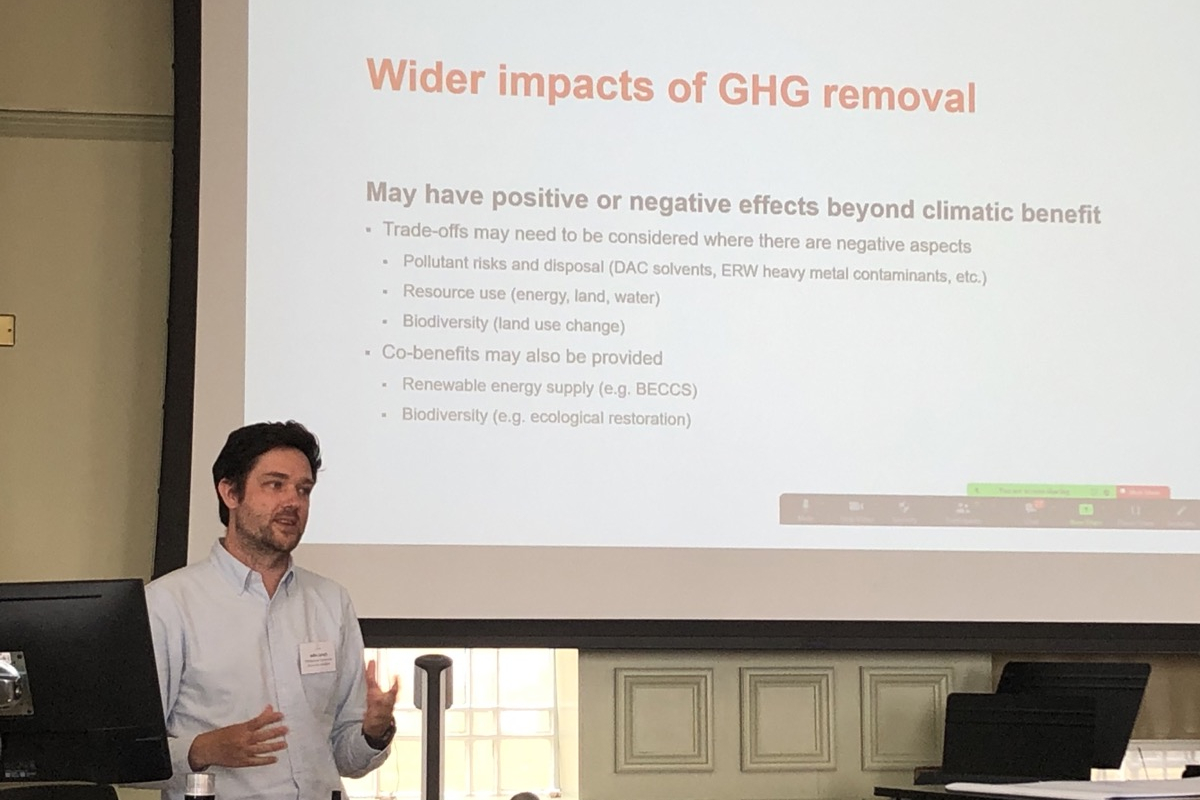Monitoring, reporting and verification of carbon dioxide removal: wider sustainability and the role of nature-based solutions

Most scenarios compatible with limiting global temperature in line with the Paris Agreement include a significant amount of carbon dioxide removal (CDR). However, concerns have been raised over the broader environmental impacts of scaling up some CDR technologies, and the integrity of emerging carbon markets. To start addressing these challenges, the greenhouse gas removal hub, CO2RE, held a workshop on monitoring, reporting and verification (MRV) for greenhouse gas removal.
NbSI team-member, and CO2RE postdoc, John Lynch helped organise the Bristol-based workshop, and led discussions on the environmental impacts of CDR and how best to support nature-based solutions.
Nature-based solutions play a critical role in adapting to climate change, but must be underpinned by biodiversity and implemented according to best practice. John highlighted the challenges in standardising impact assessment, as many technologies are in the development stage, with little appraisal of environmental outcomes beyond carbon removal.
At the same time, where carbon removal is provided through ecological recovery and operates as a genuine nature-based solution, the broader benefits should be recognised, and could be tracked through shared MRV programmes that quantify carbon removals.
Workshop participants noted the need for a clearer remit and sufficient funding to support environmental regulators to deal with sustainability concerns in relation to CDR. It was recognised that in some respects accurate monitoring of habitat-based carbon sequestration may be more challenging than for ‘engineered’ removals, but can still provide powerful climate change mitigation. Furthermore, the wider ecosystem recovery provided will be essential for biodiversity conservation and climate change adaptation.
Read more about: Investigating the biodiversity, social and sustainable development outcomes of achieving net-zero in the UK




